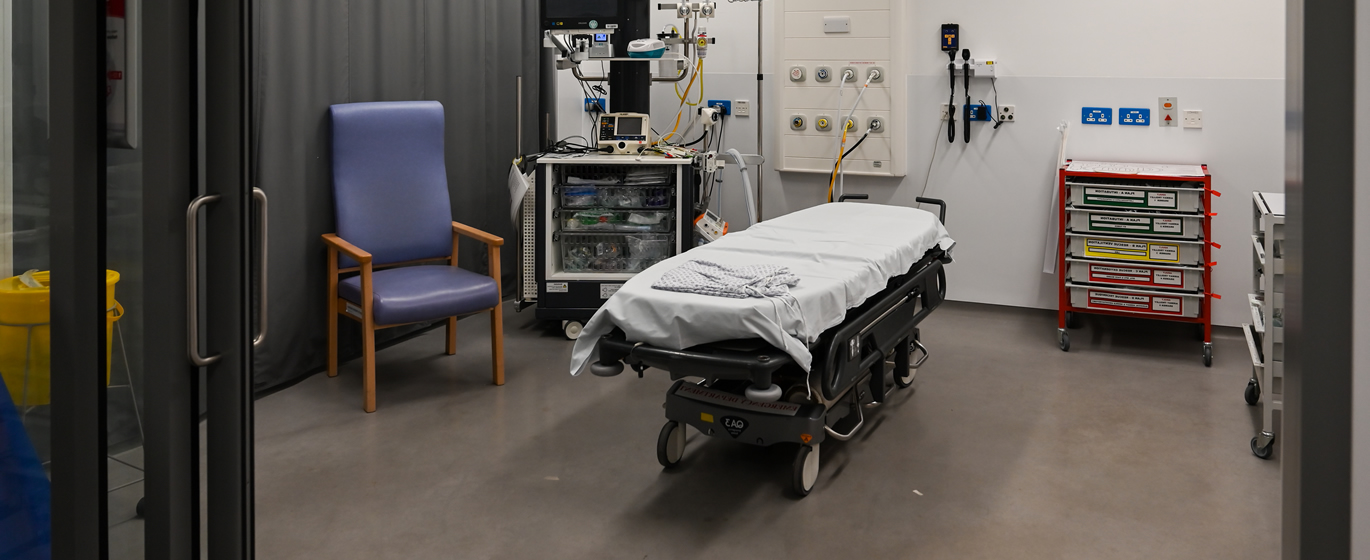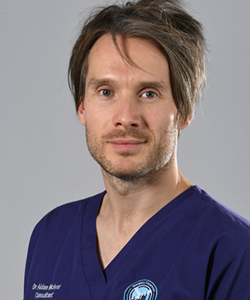
Case studies and further information regarding Same Day Emergency Care will follow soon.
+ Nathalie Richard - Chair
I am a consultant working in Emergency Medicine and SDEC at the Whittington Hospital in London. My role is the ED SDEC lead and clinical lead for the Virtual ward. I helped develop the multidisciplinary SDEC unit in 2012, as part of the first cohort in the NHS elect ambulatory care network. I have held national roles as clinical advisor for NHS elect and representative for Emergency Medicine, and a member of the NHS England working group for SDEC.As chair of the SDEC Special Interest Group, I hope to promote the benefits of SDEC within Emergency Medicine and support Emergency clinicians in developing SDEC skills, leadership, through training and working in partnership with other acute clinical specialities. The SDEC special interest group consists of a team of individuals with real enthusiasm and experience for SDEC, who represent interdisciplinary skills and I’m delighted to work with them as part of the wider RCEM SDEC strategy.
 John Stokes is an organisation development consultant with international experience in public and private sectors – specialising in issues of leadership and change, performance management, organisation design and team effectiveness. Beyond the health sector, he has engaged heavily with organisations in financial, professional services and criminal justice sectors, and most recently with the World Bank.
John Stokes is an organisation development consultant with international experience in public and private sectors – specialising in issues of leadership and change, performance management, organisation design and team effectiveness. Beyond the health sector, he has engaged heavily with organisations in financial, professional services and criminal justice sectors, and most recently with the World Bank.
His career has spanned over 40 years, working with leaders at every level, as both employed internal advisor and contracted external consultant. John recently joined the SDEC group, having worked with the college for the past 5 years on various committees and SIGs, including Informatics, Sustainable Working Practices, and Toxicology.
My name is Jo and I work between ED and AMU (including SDEC) at University Hospital Southampton. I am an RCEM Credentialed ACP, with a background of nursing. SDEC is a great way of being able to support patients to be able to stay at home with ambulatory input. In my free time I enjoy being outside including kayaking and outdoor swimming.
 I am an Emergency Medicine Consultant in NHS Lothian and work one day per week within Acute Medicine. As an EM trainee, I completed a fellowship in Ambulatory Care in Edinburgh, and I am now very interested in the development of SDEC within the training curriculum.
I am an Emergency Medicine Consultant in NHS Lothian and work one day per week within Acute Medicine. As an EM trainee, I completed a fellowship in Ambulatory Care in Edinburgh, and I am now very interested in the development of SDEC within the training curriculum.
I am delighted to be involved in this SIG and in the development of SDEC on a national level and I am excited to share in the experiences and skills of others around the country. I hope to work with the group to inspire interest and enthusiasm for SDEC while informing our own practice and development.
GP and EM SAS at the Royal Berkshire Hospital Foundation Trust. Long Term Conditions Clinical Lead for BOB ICS with particular interest in reduction of unplanned admissions and improving patient pathways. Keen advocate for same day emergency care reviews for rapid assessment across urgent and emergency care systems.
T0 be confirmed
EM Consultant at Monklands Hospital, also works as a Consultant Acute physician one day a week.
EM Consultant at King’s College Hospital, London. Liases with Acute Medicine and Ambulatory Care unit.
Amy is a member of RCEM’s Quality Team and provides administrative support for the group. She joined the SDEC SIG in September 2023 and is excited to help facilitate the group’s work. Contact Amy on: amy.stanton@rcem.ac.uk
Dr Aidan McIvor
+ OOPE Fellowship - Ambulatory Care/SDECMy name is Aidan McIvor, I am Consultant in Emergency Medicine and Acute Medicine in NHS Lothian, working between two acute sites – St Johns Hospital and the Edinburgh Royal Infirmary. During my time as an EM trainee, between ST5 and ST6, I undertook an OOPE Fellowship in Ambulatory Care (since locally renamed SDEC) at the Royal Infirmary of Edinburgh (RIE). This was a pilot role which I created alongside the TPD for EM and Clinical Lead for Ambulatory Care and served to develop our local model, while working to strengthen relationships between the ED and Acute Medicine teams. Ambulatory Care in RIE is under the care of the General Medical team with no management input from the ED, thus having the presence of an EM Registrar for 12 months was a novel prospect.
Prior to training in EM, I had completed Core Medical Training and had subsequently maintained an interest in the ED-AMU interface. Discussions with my Clinical Leads and TDP identified this area of interest which aligned with a local recognition of the need for improvements to the pre-existing Ambulatory Care Clinic. Deanery approval and finance were then sought and my OOPE began after completion of ST5 in August 2020. Of note, it was agreed that I would work one weekend in four in the ED during this year in order to maintain skills.
This OOPE has played a vital role in my being appointed to a substantive role in NHS Lothian where I continue to work in both Emergency and Acute Medicine, and to use and further develop the skills which I gained during my training and my OOPE year in particular. It additionally led to my appointment as EMTA rep to the RCEM SDEC SIG of which I am now a member, and am privileged to work with colleagues around the country who share my enthusiasm for SDEC and the development of this exciting area of EM.
As well as furthering my clinical and procedural skills, a focus of my time during this OOPE was on service improvement and I was fortunate to be able to be involved in the development of new pathways and ongoing departmental QI further detailed below.
Reflecting on my OOPE year I have very fond memories and am grateful to have had the opportunity to step away briefly from EM training in order to develop new skills which I have since been able to bring to my work as a Consultant, and which offer the chance for continued service improvement. It was a busy year where I was focused on developing new clinical skills, alongside management, QI and teaching and I believe that we have set a precedent for what can be achieved from which I hope others will follow and join us in developing SDEC nationally.
The Royal College of Emergency Medicine has resources available for Emergency Departments on ambulatory care.
This toolkit has been written primarily for the Emergency Physician aiming to develop ambulatory care from the ED. It requires strong clinical leadership, regular access to senior decision makers, a clear focus on multidisciplinary team development and close collaborative working with all relevant specialty colleagues.
